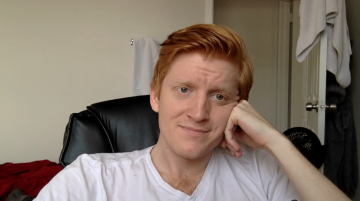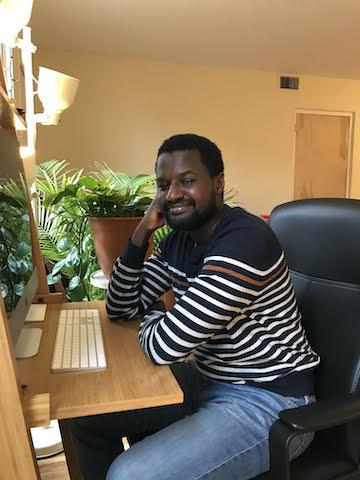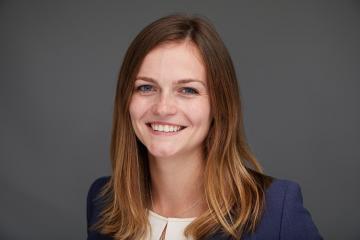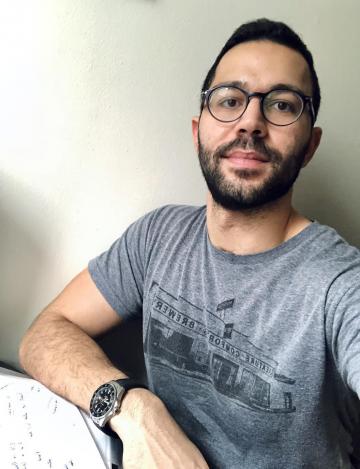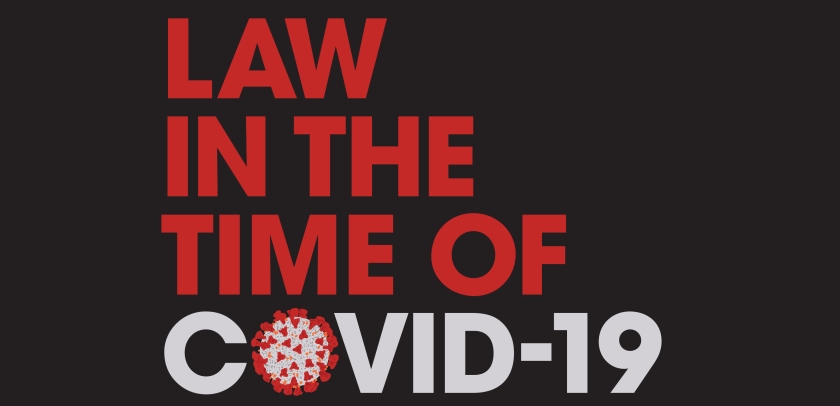Columbia Law Students Respond to COVID-19 With Pro Bono Projects
Students use their legal skills to help small-business owners, incarcerated individuals, unemployed workers, immigrants, and others affected by the crisis.
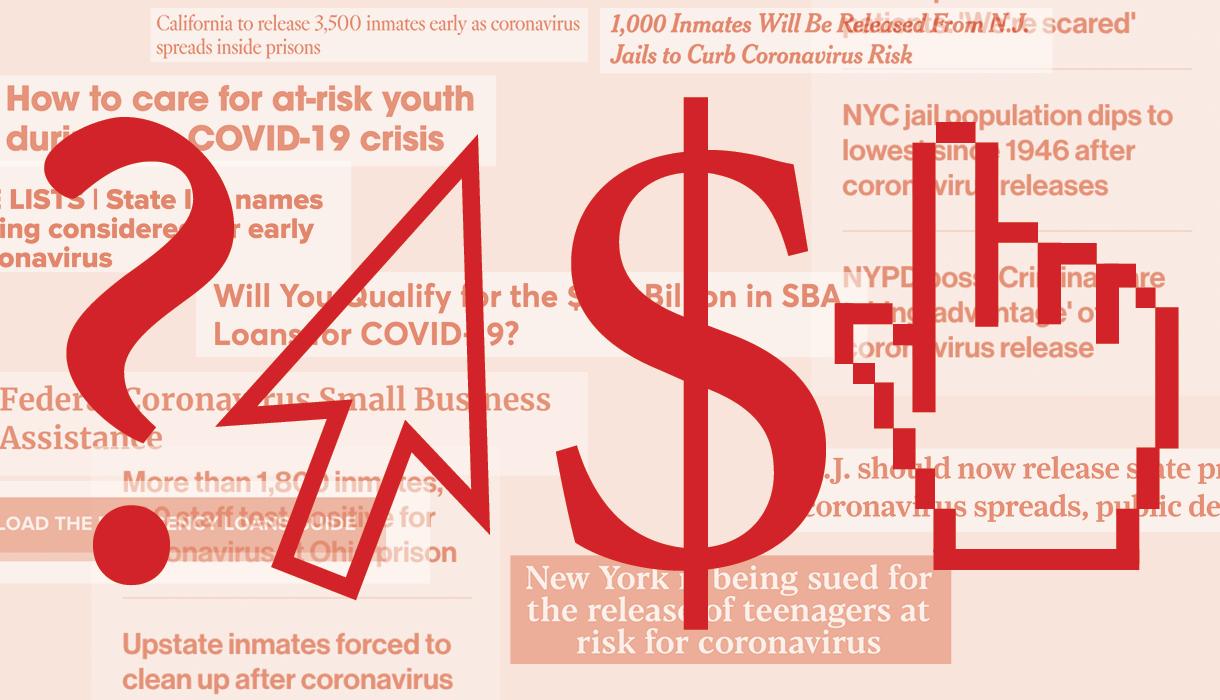
As the COVID-19 pandemic continues to upend nearly every sector of society, the Law School community has mobilized to help individuals and communities. More than 150 Columbia Law School students are working with faculty on pro bono projects: They are guiding small-business owners through the federal Paycheck Protection Program loan process, supporting public defenders working to win the release of prisoners vulnerable to COVID-19, and finding crucial resources for unemployed workers and immigrants.
Students say they are putting in “Big Law hours” to stay ahead of the fast-moving virus and flagging economy. “It’s a really exciting way to get involved and to make something positive out of this incredibly difficult, negative time,” says Maya Katalan ’21. Here are just some examples of how students are applying theory to practice and acting to help others.
Answering a Professor’s Call: Expediting Emergency Small Business Loans
Led by Timothy Wu, Julius Silver Professor of Law, Science, and Technology, a team of nearly 50 students is helping those who own small businesses in New York City apply for loans made available through the first and second rounds of the federal Paycheck Protection Program (PPP).
Wu put out word of the PPP Pro Bono Project, which is focused on businesses with fewer than 15 employees, through Manhattan Borough President Gale Brewer’s office and offered assistance to businesses at the Brooklyn Navy Yard through its newsletter. Though many clients are located in Columbia’s neighborhoods of Morningside Heights and Harlem, the team is helping more than 130 businesses, including a Rockaway Beach surf shop and a youth gymnastics program in Harlem. Team members are assigned clients and serve as “information clearinghouses, hand-holders, and cheerleaders at the same time,” says Katalan, who is working with Wu’s team.
Although the students can’t fill out loan applications or review business paperwork for clients, they have researched hundreds of bank loan requirements and identified alternative lenders such as Intuit, PayPal, and Square, which also are making PPP loans. “Most people think, ‘I called my bank, I sent them an email, and that’s all I can do,’ and part of this project is making people realize that’s actually not true,” says Peter Cramer ’21, who is working with a preschool, a coffee shop, and a video special-effects house. “We can help with how confusing this process is and be a sounding board.”
Zach Sullivan, creative director of The Sodium Ranch, a Brooklyn movie equipment rental business, called the Columbia Law students’ help amazing.
“They’re like a band of angels,” he told Wu in an email. “I’ll certainly stay in touch for the guidance. I’m pretty decent at recognizing when people are working really hard, and I see people doing it now.”
Katalan says she leapt at the chance to participate in the PPP Pro Bono Project partly because she loves New York City’s plethora of small neighborhood businesses. “It’s not really a chain city,” she says. “You see individual proprietors and a really unique mix of businesses, and that’s something that is really important to protect.”
“It’s a really exciting way to get involved and to make something positive out of this incredibly difficult, negative time.”
Accessing Resources While Incarcerated
More than two dozen students are working with Law School scholars on research projects that focus on the effects COVID-19 has on people in jail or prison and those who have been recently released.
As the COVID-19 crisis began to unfold, Natalie Behr ’21 started to worry about the clients she worked with last summer at a Georgia public defender’s office, many of whom were incarcerated pretrial. “The people I was representing should not have to die of the coronavirus in jail or prison,” she says. Behr is one of four students who collaborated with Susan P. Sturm, George M. Jaffin Professor of Law and Social Responsibility, on a legal and policy manual for people who are incarcerated or recently released from prison and their families. The report’s goal, its introduction says, is to “connect people in New York with the best available information so they can get legal and social support where possible and advocate for themselves and others affected by incarceration during and after the pandemic.” Published by the Law School’s Center for Institutional and Social Change, the manual was the basis for a chapter in Law in the Time of COVID-19, an e-book created by Katharina Pistor, Edwin B. Parker Professor of Comparative Law, that features scholarship by more than a dozen Columbia Law scholars.
“There weren’t a lot of resources geared toward individuals who are trying to get out or get their family members out,” Behr says. “It was important to produce this quickly so we could get it to people who could use it.”
Working on pro bono projects aimed at winning release for the incarcerated has helped allay Behr’s anxiety—somewhat: “As someone who wants to be a lawyer, I want to support those who are doing the work. But I wish I was a lawyer right now. I wish I could be filing on people’s behalf”
Students are also helping public defenders build cases for incarcerated clients. Gregory Bernstein ’20, Stephanie Guzman ’22, Maggie Hadley ’22, Alison Hung’22, Anita N.H. Yandle ’21, and Rosalyn M. Huff CC ’20 collaborated with Bernard Harcourt, Isidore and Seville Sulzbacher Professor of Law, and Lecturer-in-Law Alexis Hoag on a chapter on prisoners’ rights in Law in the Time of COVID-19. Focusing on successful cases using arguments based on compassionate release or the Prison Litigation Reform Act, students researched how U.S. courts have responded to motions for release from prisoners at high risk of COVID-19. Then they shared that information with lawyers on the East and West Coasts.
Bernstein, who previously worked with Harcourt on his representation of Alabama death row inmate Doyle Lee Hamm, notes that while release is not always an option, there are other solutions. “Even in jail, prisoners retain their constitutional rights, and that includes being free from being exposed to a deadly pandemic,” Bernstein says. “Short of release, courts could order [prison officials] to provide prisoners with proper protective gear and hand sanitizer and enforce social distancing protocols in a way that does not involve throwing people into solitary confinement.”
Other students have researched the rights of prison staff who are also at high risk of becoming infected with COVID-19. “It’s a civil rights issue, not necessarily a criminal justice issue,” says Sherwin J. Nam ’21, who is a teaching assistant for Harcourt’s criminal law class. “Everyone has a right to workplace safety. It’s about protecting people.”
Helping Workers Find Assistance
When New York and other states issued stay-at-home orders in March, Mark Barenberg, Isidor and Seville Sulzbacher Professor of Law and director of the Columbia Program on Labor Law and Political Economy, knew that many workers faced imminent unemployment while others who remain on the job would be making themselves—and their families—susceptible to being exposed to COVID-19. To help them, Barenberg recruited more than 50 Law School students for eight different pro bono projects. “The projects include helping to design a new mechanism to get cash benefits to unemployed undocumented workers who aren’t eligible for existing government benefits; helping on-the-job warehouse, retail, and health care workers get protective equipment, paid sick leave, and protection against firing if they speak up about exposure on the job; and helping non-government relief funds get grants to applicants,” says Barenberg.
He adds, “Students are incredibly eager to do something to help workers in the crisis, even while students themselves are coping with their own isolation, stress, and anxiety.”
Taxi workers, for example, fall into both categories. “Everything is different for them now,” says Ibrahim Diallo ’20, a Davis Polk Leadership Fellow. “The number of fares has dropped by 90 percent, and if they do transport people, they risk being exposed to the virus.”
Diallo along with Corinna Svarlien ’21 and Allison Langley ’20 have been working with the New York Taxi Workers Alliance (NYTWA) to assist yellow cab drivers (independent contractors who aren’t eligible for unemployment insurance but can seek help from the Pandemic Unemployment Assistance Program) and Uber and Lyft drivers (who do qualify for unemployment benefits). “The application process for pandemic assistance has changed several times, making the process both complicated and frustrating,” Svarlien says. Diallo spends about five hours a day online to help drivers apply for benefits. (He uses screen sharing on Zoom or FaceTime to walk them through the process.) “If we don’t help them do this, they will have no money,” he says. “These benefits are their safety net, and without it, what are they going to do?”
“Students are incredibly eager to do something to help workers in the crisis, even while students themselves are coping with their own isolation, stress, and anxiety.”
Putting Experiential Education to the Test
Students in the Law School’s clinics provide pro bono counsel to individuals and organizations that might otherwise lack quality legal representation. Now, despite being separated by self-isolation, clinic students and faculty are pivoting to respond to the COVID-19 crisis and help vulnerable populations.
Safe as Houses
How do I pay the rent? That’s the question millions of Americans are asking themselves as jobs disappear and businesses remain closed. To examine the actions that states have taken to prevent homelessness and preserve safe housing during and after the pandemic, Emily Benfer, a visiting professor who leads the Health Justice Advocacy Clinic, recruited a dozen public health and law students to create an exhaustive compilation of eviction moratoriums and a COVID-19 Housing Policy Scorecard. A collaboration with the Eviction Lab at Princeton University, the scorecard distills the contents of thousands of newly released emergency orders, declarations, and bills into a data set of state-level pandemic responses related to eviction prevention and housing stability. The scorecard has been a resource for tenants, advocates, and state lawmakers, and it has been used by members of Congress to develop a federal rent relief bill. Their work has been reported on by ABC News, the Washington Post, and other news organizations.
Data analysis is also key to identifying individuals in trouble spots. When the COVID-19 crisis erupted, the Lawyering in the Digital Age Clinic, led by Professor Conrad Johnson and Director Brian Donnelly, had already been working with the Legal Aid Society on a project that analyzed court data on eviction cases to aid advocates in preventing evictions. “Our client asked us to shift gears and use data from a variety of sources to identify at-risk clients and populations, with a view toward preparing for the tidal wave of nonpayment eviction proceedings that will inevitably swamp free civil legal service providers,” says Johnson. Clinic students later hosted a virtual meeting for New York state and city legislators and policy aids, to present their findings. The meeting generated interest in the clinic’s proposals, which aim to support tenants and prevent homelessness, promote affordable housing, and facilitate living environments in-line with public health protocols.
The clinic is also working with the Western New York Law Center in Erie county—an area hit hard by COVID-19—to aid people seeking relief through bankruptcy. Students launched and continue to maintain a website that enables the center to determine client eligibility. In addition, clients are given a tool to guide them through the bankruptcy process. “There is no doubt that COVID-19 will push many individuals into bankruptcy,” says Johnson. “Our work in making this service available is critical to the success of the project.”
Resources for Those Most in Need
A team of seven students in the Immigrants’ Rights Clinic, under the direction of supervising attorney Amelia Wilson and Elora Mukherjee, Jerome L. Greene Clinical Professor of Law, has focused its COVID-19 response on representing individuals in the custody of Immigration and Customs Enforcement (ICE) whose comorbidities place them in acute danger if infected. The clinic’s work has included partnering with students from the Columbia Medical School Asylum Clinic and filing emergency humanitarian parole and supervision requests before ICE.
In the Adolescent Representation Clinic, taught by Jane Spinak, Edward Ross Aranow Clinical Professor of Law, students produced a weekly e-newsletter for the clinic’s clients and youth organizations across New York City. Topics included resources for fighting eviction; guidelines for what to do if you have a court date; and how to apply for financial support for groups such as foster children, undocumented youth, domestic workers, and sex workers.
“Our clients are inherently more at risk than other populations because they might not have support systems in place,” says Jacquelyn Watson ’21, one of six clinic students working on the newsletter.
Urgency is key. “Providing information now may preempt some of the situations that might cause legal issues later,” Watson says.
Students in the Community Advocacy Lab clinic have been working with Colleen Shanahan ’03, associate clinical professor of law, to find creative ways to make sure vulnerable populations get the financial assistance they need. For example, Suz Kroeber ’21 is exploring the use of video tutorials, pamphlets, and media campaigns to help people file tax returns to obtain much-needed refunds and stimulus checks. Fellow students Meghan Lucas ’21 and Seojin Park ’21 are coordinating student volunteers and working with a New York State coalition of community, labor, and immigrants’ rights organizations to deliver emergency funds to undocumented workers who are ineligible for unemployment benefits. “The plight of all displaced workers is heartrending, but for undocumented immigrant workers it is especially frightening,” says Lucas. “They work for all New Yorkers in some of the city’s toughest jobs, but are utterly on their own for replacement income.”
Urgency is key. “Providing information now may preempt some of the situations that might cause legal issues later.”
Support for Small Businesses
In the Entrepreneurship and Community Development Clinic, directed by Lynnise Pantin ’03, clinical professor of law, students are mobilizing to develop online tools and resources to serve clinic clients and others. Thea John ’21 helped put together a list of legal resources for the Columbia-Harlem Small Business Development Center and worked with a group of New York City medical students who launched the NYCovidConnect website and Instagram account. John and Daniel Palacios ’21 wrote a memo for the website’s creators that addressed issues including privacy, potential HIPAA violations, and whether website disclaimers are sufficiently comprehensive. John also worked with Rayna Guo ’20 to develop a Small Business Pandemic Toolkit for clinic clients and other small businesses.
Clinic participants Ryan Olson ’20, David Chammas ’21, and Annelise Bertrand ’20 also developed a “know your rights” project for the clinic’s clients as well as other small businesses and independent contractors related to the federal stimulus funding under the CARES Act. Their COVID-19 Legal Resources page on the Columbia Law School website includes sections on employment law, insurance and taxes, financial assistance, commercial leases, mortgages and foreclosures, and student loans.
“You spend all of law school learning how to do research on issues, and it’s very satisfying to apply these skills to the pandemic,” says Olson. Like many students, Chammas considers this part of his duty as a law student and future lawyer. “I have found it rewarding to actually help, encourage, and empower real people and real businesses,” he says. “That is one of the main reasons I came to Columbia Law School in the first place.”
Read more about how the Law School community is responding to the COVID-19 pandemic.
